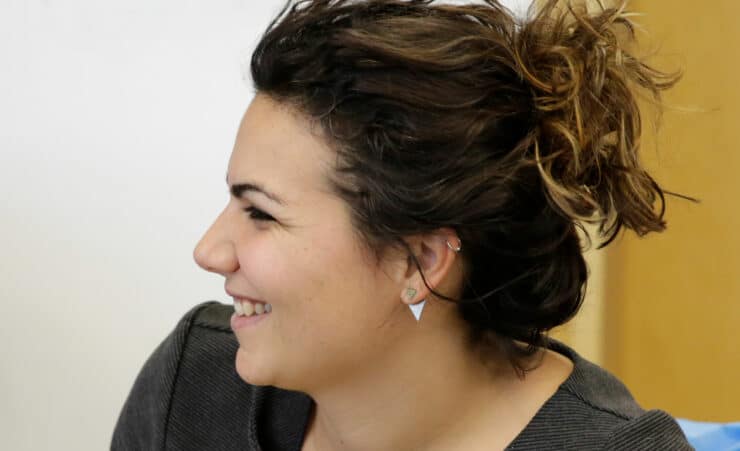In what has become a new year tradition here at IVAR, we have looked at which of our publications and blogs were most popular during 2023. We hope that this summary of insights from those ‘most viewed’ pieces provides some useful food for thought as you begin 2024.
For us, reflecting on what people have engaged with will help to guide our direction for the year ahead. One thing that struck us when looking at the stats, is that some of the most viewed content in 2023 was published in previous years. So, as well as sharing new research insights, we’ll continue to dive into the back catalogue to share past work that has relevance to current challenges.
1. Connecting health communities
Publication: Not just ticking boxes – Four stories illustrating the power of community-led health service design
September 2023
Who did we work with?
Over a two year period, we worked with four cross-sector partnerships to involve communities in addressing health inequalities that affected them. Our work was funded by the National Lottery Community Fund.
What was the project about?
Each partnership chose a health inequality to address that affected local people. We worked on:
- Improving access to cancer screening in Eastbourne, East Sussex
- Improving rural access to healthcare in North Yorkshire
- Reducing smoking in Sheffield
- Asking older people what works for them in the Wirral
The work we did together illustrates the progress that can be made when communities are involved in designing services; and when cross-sector groups work together to invite people in, listen, and then make changes.
What did we learn?
Eight key reflections were taken from this project:
- Go where there is energy, vision and enthusiastic people
- Ensure representation on your steering groups
- Building relationships can be challenging when there is high staff turnover
- Use language that resonates with your community
- Ensure communities are involved in cross-sector co-design work as this leads to better service design and delivery
- Invest time and resources in building cross-sector relationships
- Commit to a test & learn approach
- Celebrate and share your partnership wins
2. Unrestricted funding
Publication: Making the case for unrestricted funding
May 2023
What was the purpose for this briefing?
This briefing summarised the key points from our research to help grantmakers and Boards to consider and make the case for unrestricted funding.
What did we learn?
Evidence for the assumed benefits of restricted funding offers an inadequate justification for the strong preference still shown by many funders for this model. On the other hand, evidence suggests that funded organisations’ continuing advocacy for more unrestricted funding is not simply a matter of preference, but shows promise in delivering a range of benefits that are of importance to funded organisations and funders alike. The case for funders engaging with the arguments for change is a strong one.
Blog: Two practical ideas to increase unrestricted funding
March 2021
What did the blog cover?
The William Grant Foundation is an Open and Trusting Grantmaker – signed up to our eight commitments for making and managing grants in a way that reflects funders’ confidence in the organisations they support. Nick Addington, Chief Executive of William Grant Foundation, shared some practical ideas.
One of the eight Open and Trusting commitments is to ‘enable flexibility’. Unrestricted funding, in particular, is highlighted as the best way to allow grantees to respond flexibly to changing priorities and needs. Nick’s two ideas for starting out with unrestricted are:
- Turn restricted project grants into ‘designated’ unrestricted grants
- Add general operating support to project support
3. Thinking about… Charity Reserves
Publication: A research report into charity reserves management in Scotland
October 2022
What was the project about?
The Scotland Funders’ Forum commissioned IVAR ‘to understand how charity reserves can contribute to a dynamic and resilient third sector’ and explore ‘how charities can manage reserves for stability, but also how they can make reserves work harder’. This research report explores charity reserves management in Scotland but has practical advice that can be applied UK-wide.
What did we learn?
There were four key issues for consideration:
- If more charities can adopt strategic reserves management practices, we could be confident that more charities hold, or are moving towards, an appropriate level of reserves
- Charities can take steps to implement strategic reserves management (summarised in this briefing)
- Funders have a critical role to play to encourage strategic charity reserves management
- Regulatory bodies and policy makers can support more strategic charity reserves management
More details of the key issues for consideration are included in the report.
4. Charities' funding experience
Blog: Get the basics right: 10 actions to improve charities’ funding experience
September 2022
What did the blog cover?
The blog summarises our findings about what 1,200 charities want from funders when they apply for and manage grants. It was part of our first go at holding Open and Trusting funders to account for their commitments to working differently – a process that put charities in the driving seat, facilitating reflective discussions between funders that were grounded in the findings below.

5. Rebalancing power in community settings
Blog: What we’ve learned about rebalancing power in community settings
March 2023
What did the blog cover?
The blog talks about how decision-making spaces can be more accessible and available, to ensure people feel meaningful when developing solutions that communities need. At the heart of this is thinking about where and how to create opportunities to rebalance power. Over the years we have found that when communities are involved in finding solutions to issues that affect them the results are invaluable. Later in the year, we reflected on how our own practice is evolving in a follow-up blog ‘What is power, and how can it be redistributed to communities?’.
6. Emerging researchers
Blog: Young researchers share their findings – The Jane Hatfield Award 2023
October 2023
What did the blog cover?
In September 2023, IVAR and The Ubele Initiative had the pleasure of hosting an event to share the work of the first recipients of The Jane Hatfield Award, a grant for young researchers to support a piece of research on topics or issues related to community, and social action and/or social justice.
The 2023 recipients conducted research and released reports that explore the experiences, barriers and opportunities of social action and social entrepreneurship for young people from Black and minoritised communities. Researchers shared the themes that had emerged from their research like equitable funding and support needed in the social action space.

